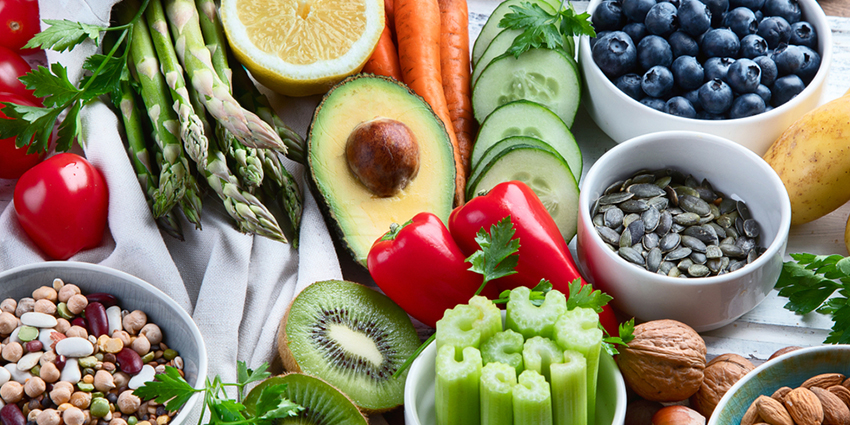How to maintain healthy diet during covid-19 pandemic at home.
“Food & nutrition tips for before, during and after the pandemic for everyone”.
Eating the right kinds of foods, in the right amounts, is very crucial for our health. COVID-19 pandemic has changed a lot in the daily lives of people. During these difficult times, it has become essential to maintain a healthy lifestyle. While no foods or dietary supplements can prevent COVID-19 infection, but by maintaining a healthy diet we can keep our immune system strong for fighting the disease.
Healthy diet and proper nutrition keeps a person healthy and strong. Balanced diet also keeps you away from many diseases which are common now a day’s only because of unbalanced diet like diabetes, overweight, blood pressure, thyroid, stone and many more.
Tips For Maintaining A Healthy Diet:-
- Eat a variety of foods: Every day, eat a combination of different foods including whole grains such as wheat, maize and, legumes like lentils and beans, fruit and vegetables and some foods from animal sources (e.g. meat, fish, eggs and milk).
- Eat plenty of fruit and vegetables: Eat fresh fruit and vegetables that are in season.
- Eat a variety of fruit and vegetables.
- Limit salt intake:-
Use less salt during cooking and preparing food and use iodized salt. - Check the labels on food and choose products with lower sodium content.
- Limit processed and prepackaged foods, which can be full of hidden sodium.
- Remove the salt shaker from the table, and instead use fresh or dried herbs and spices for added flavor.
- Eat moderate amounts of healthier fats and oils:-
- Replace butter, ghee and lard (saturated fats) with oils rich in healthier fats (unsaturated fats) like olive, soy, sunflower or corn oil when cooking.
- Choose white meats like poultry and fish which are generally lower in fats than red meat.
- Select low-fat milk and dairy products.
- Avoid processed, baked and fried foods that contain industrially-produced trans-fat.
- Try steaming or boiling instead of frying food when cooking.
- Limit sugar intake:-
- Limit intake of sweets and sugary drinks.
- Choose fresh fruits instead of sweet snacks such as cookies, cakes and chocolate.
- When other dessert options are chosen, ensure that they are low in sugar and consume small portions.
- Drink enough water and stay hydrated: Good hydration is crucial for optimal health. Drinking enough plain water is a simple way to get hydrated as it has zero calories.
- Avoid hazardous and harmful alcohol use: Alcohol is not part of a healthy diet. Drinking alcohol does not protect against COVID-19 and can be dangerous. There is no safe level of alcohol consumption.
- Continue To Practice Good Food Hygiene:- COVID-19 is a respiratory virus and is not a food-borne disease. However, it’s always important to practice good food hygiene like– keep clean; separate raw and cooked food; cook thoroughly; keep food at safe temperatures; use safe water and raw materials to prevent any food-borne illnesses.
Precautions To Take While Shopping For Groceries:-
- Wear a face mask or cloth cover while in public.
- Maintain a safe physical distance of at least 6 feet (Do Gaj Ki Doori) from all other shoppers and staff while queuing before entering the store and while shopping in the store.
- If a trolley or basket is used while shopping, sanitize the handle before and after use.
- Hands should be sanitized before entering the store.
- Practice good coughing/sneezing etiquette while in the store.
- Avoid touching mouth, nose or eyes during shopping.
- Use contactless payment rather than cash/notes (where feasible).
- After accepting food/grocery deliveries use hand sanitizer or wash hands with soap and water.

